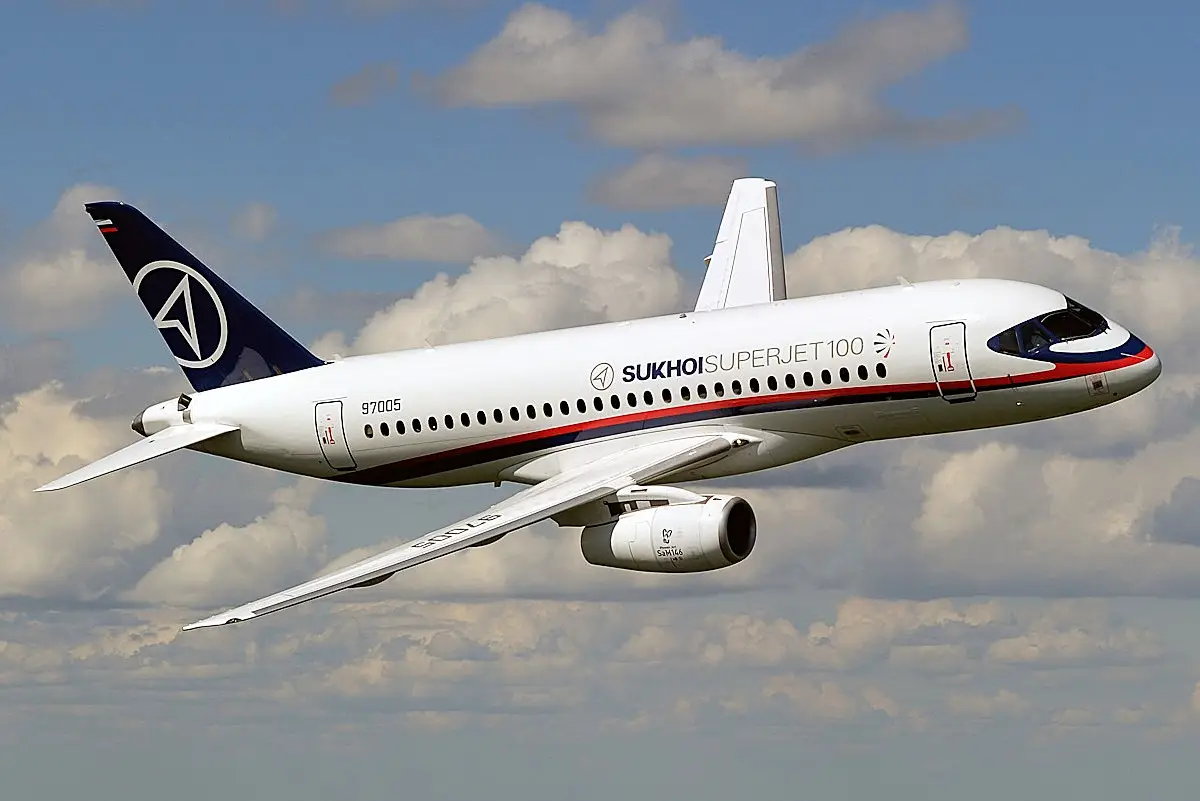
Sukhoi Superjet 100 aircraft: safety alert
Manufacturing defects in 14 units produced in 2016? Yakovlev orders urgent inspections

Russian civil aviation is on alert after potential structural defects were identified in 14 Sukhoi Superjet 100 (SSJ-100) airliners manufactured in 2016. The news, reported exclusively by the Russian daily Izvestia, reveals that the current manufacturer, Yakovlev, has issued a notice to the Federal Air Transport Agency (Rosaviatsiya) regarding possible weaknesses in the fuselage fasteners.
According to yesterday’s report by the Russian newspaper, apparently based on internal documents reviewed by the paper, Rosaviatsiya issued an airworthiness directive on August 1, ordering airlines to carry out immediate inspections on aircraft with serial numbers between 95104 and 95117. These are 14 airframes built in 2016 by Sukhoi Civil Aircraft Company (SCAC). The issue concerns a potential “deviation from the design documentation” at the joint between the cockpit and the forward entry door, a critical area of the fuselage. The absence of proper fastening could, over time, lead to the formation of cracks, deformations, or buckling.
The affected units operate with several carriers, including Rossiya, Azimuth, and Yamal, and about a hundred are in active service. Izvestia obtained confirmation from Azimuth, which stated that only one of its aircraft is subject to inspection and is currently not operating scheduled services, so there are no risks for passengers or disruptions to the normal flight schedule.
The current manufacturer Yakovlev, part of the State-owned United Aircraft Corporation (UAC), has issued a technical service bulletin detailing the inspection procedure, which requires removing interior parts, including the door trim and acoustic insulation panels. Aircraft found to have the defects will have to be withdrawn from flight operations for repair.
Sources at United Aircraft Corporation reportedly specified that the directive is purely preventive in nature and is part of the normal control procedures to ensure the safety of the existing fleet. Industry experts interviewed by Izvestia stressed that such directives are routine in the aviation world and are not indicative of widespread problems, but rather of diligent monitoring activity. If the inspection confirms the defects, the costs and timelines for repairs have not been specified, although Izvestia’s report suggests it could be a complex undertaking.
A bit of history...
The (Italian-Russian) project and the initial production of the SSJ-100 have historically been associated with Sukhoi, particularly through its civil division, Sukhoi Civil Aircraft Company (SCAC). However, as part of a reorganization of the Russian aviation industry, in 2022 SCAC was incorporated into the Yakovlev Group (formerly Irkut Corporation), which in turn is part of the larger United Aircraft Corporation (UAC). The goal of this merger was to optimize the management and production of Russian civil aircraft under a single brand, which is now Yakovlev. Consequently, while retaining the trade name “Sukhoi Superjet 100", responsibility for development, production, and technical support has officially passed to Yakovlev, as also indicated in the cited Russian article.
The SSJ-100 is the only Russian-built airliner developed with significant participation by European companies for avionics and engines after the dissolution of the Soviet Union. Since its first production in 2007, a new model, the SSJ-New, has also been developed, with the aim of replacing imported components.
Alenia Aermacchi, the Italian component of both the project and production, was incorporated into Leonardo in 2016, coinciding with the renaming of Finmeccanica. Leonardo progressively reduced its participation in the SSJ-100 program. Its de facto exit from the partnership occurred in several stages, but a crucial moment was in 2016, when Leonardo reduced its stake in the SuperJet International joint-venture from 51% to 10%. Subsequent international sanctions against Russia starting in 2022 completely halted joint activities, putting the JV at risk of liquidation and bringing to an end any operational role for Italy in the aircraft’s production and support.
AVIONEWS - World Aeronautical Press Agency